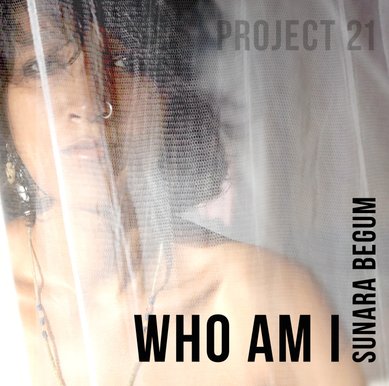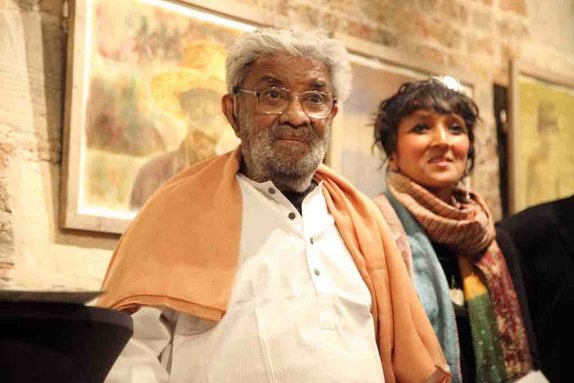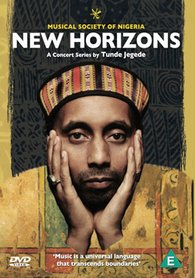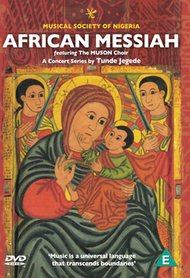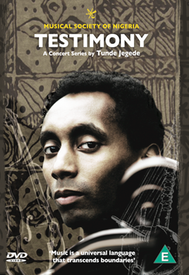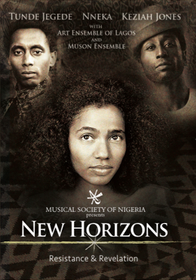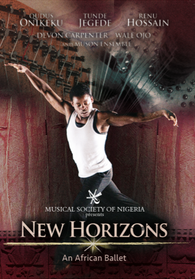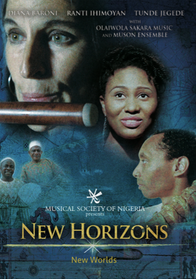PROJECT 21
Concept, Writer, Director, Editor, Performer: Sunara Begum
Partner: Xiom Music
Project 21 is a 21 channel audio visual installation exploring spirituality, femininity and identity intertwined with spoken word poetry, song and traditional chant. The short films are shot in 21 different cities across five continents exploring the shifting gender roles between East and West, the female form and its intrinsic connection to space over time. The films are an attempt to blur the geographic lines that continue to divide us but to rather focus on the binding creative and cultural forces that unify and help bring us together. The films draw from deities of pre-Islam Bangladesh to Yoruba Orissa gods of West Africa, and other ancient sites such as the Celtic stone circles in Cornwall, the Moai statues of Easter Island in the Pacific to the early rock paintings in the Ardèche region in the southwest of France, the rock temples in Ethiopia and the ancient Mayan stone pyramid of Kukulkan. These films are a way of bringing the gods of the past into the present. They represent a meeting point of continents that embody the sense of a story that is still evolving.
Project 21 incorporates gesture, movement and mime to activate the hidden history of heritage spaces and communicates this through sound and image. The body becomes a metaphore for an ancient symbol no longer recognised. Body, space, memory and movement assign themselves to the ancient architectural imprint and thus creating a theatre space for the environment that reflects the elements. This project aims to establish a platform for innovation, experimentation and the continuous development of contemporary movement culture in UK and the European, Asian, African and Caribbean regions.
WHO AM I?
Concept, Writer, Performer: Sunara Begum
Partners: MUSON / Xiom Music / Openvizor
Who Am I is an audio-visual album by Sunara Begum exploring spirituality, femininity and identity intertwined with spoken word poetry, song and traditional chant. It tells the story of a woman in search for truth, as she embarks on a journey of essence she looks to the natural world for wisdom to overcome her deepest fears. The project is a celebration of womanhood in its complexities; juxtaposing strength with fragility, doubt with surety and knowledge with wisdom.
Who Am I album brings to life Sunara’s untold story; that of a spirited outsider reaching into the future at the time of the Draconian Age. Serendipity, intuition and an enchanting journey of purpose as well as her quest to uncover the missing links of her ancestors, give this project its magical extra dimension. Who Am I is a transcendental audio experience traversing geographic borders in the pursuit of a collective consciousness. It is a meditation on the convergence of spirituality, mythology and mysticism; a unique meeting point between tradition and modernity. Written and performed by Sunara Begum and produced by Tunde Jegede featuring, Wura Samba and Kate Aluko.
MEMORIES OF MY MENTOR: DUNSTAN PERERA
Director, Producer, Editor: Sunara Begum
Partners: Xiom Music / Openvizor
Memories of My Mentor is a seminal documentary on the life and work of Dunstan Perera (b. 1936), an extraordinary visual artist and filmmaker who has dedicated his career to expressing truth through the poetic image. Seen through the lens of Dunstan Perera, the film chronicles eight decades of image making as Perera traverses the worlds of Asia, UK and America in his timely pursuit for ultimate artistic freedom. A philosophical man, who combines the wisdom of the East with the knowledge of the West, this iconic eccentric figure takes us through his unique perspective and world views on art, craft and creativity. Memories of My Mentor blends myth and memory in the search for illusive truths that lay at the core of every true artist. Portrayed through epochs of history and culture, the film gives a personal commentary on Perera’s tumultuous journey from Colombo (Sir Lanka) to London (UK) retracing his inherent legacy. Memories of My Mentor is written, produced and directed by Bangladeshi filmmaker, Sunara Begum and uses poetry, text and storytelling to reveal the complexities of an artist at work and his inner and outer world.
The film traces the arc of Perera’s artistic, creative and personal life, his aspirations to artistry and the trajectory of his career with his invention of unique printing processes. The film directed by his student and men-tee, Sunara Begum, depicts their growing connection that shaped her life including her own creative path. Memories of My Mentor is driven by exclusive archival footage and audio along with personal insights from Perera himself - to reveal the evolution, growth and stamp only a creative icon of the 21st century artist can leave.
Kora Yoga is a new yoga system bringing together music, movement and meditation. The system combines the unique music of the West African kora tradition with the timeless philosophies and movement practice of India and the East. Each class brings together 21 core poses that correlate with the 21 strings of the West African kora (harp-lute) using music for reflection, stillness, motivation and inner calm. Progressive and challenging sequences, accompanied by therapeutic soft tissue release in every savasana. Kora Yoga creates spaces dedicated to the integration of music, art, yoga, holistic health and consciousness based on ancient Indus philosophy through ritual, wellbeing and ecology. Kora Yoga also organises retreats, escapes and experiences for the spiritual journey of yoga across the globe. With the help of co-founder, Tunde Jegede, their aim is to create lasting impressions for the soul's memory. This new system of 5 interconnected yoga classes brought to you by Sunara Begum, a practitioner and teacher of hatha yoga in Europe, Africa and Asia draws on classical yoga systems, such as ashtanga yoga, kundalini yoga, vinyasa flow and classical hatha sequences, but with new sequencing and modifications tailored to the needs of individual students.
RETRACING THE EYE: GIVING A VOICE TO THE VOICELESS
Exhibition, Concept, Printwork: Sunara Begum
Partners: V&A Museum / Dimbola Museum / DP Archive
Retracing the Eye: Giving a Voice to the Voiceless explores perspectives on homeland, retracing legacies and memories of forgotten history. Sunara has a unique ability to evoke an immediate emotional connection between subject and viewer and much of her work is occupied in capturing and conveying the expressions, emotions and gestures of her subjects. Sunara’s interest in the pioneering work of the 19th century Victorian photographer, Julia Margaret Cameron, inspired her to stage a new interpretation of her work, engaging and developing a timeless relationship with her images. She re-imagines the life of her silent subjects, over a century later, and her work is a symbol of untold stories. This series of etchings suggests the power of reclaiming the silenced voice that is all too often written out of human existence. Retracing the Eye: Giving a Voice to the Voiceless follows an intimate and poetic narrative drawing from the natural environment. The colours and textures in her work intrinsically connect to the landscape that she engages with, reminiscences of terracotta, earth pigment and draws from her own indigenous culture.
NEW HORIZONS
Founders: Tunde Jegede & Sunara Begum
Partners: MUSON / Xiom Music / Institute Francaise / Goethe Institute
New Horizons is an annual season of themed weekends bringing together music, dance, film and discussions. It brings together some of the finest international and local artists to collaborate and exchange through concerts, masterclasses, symposiums, workshops and new artistic creations. New Horizons is a three-day musical and theatrical festival celebrating Nigeria’s rich cultural heritage that engages in the highest calibre of the arts, bringing music and culture to the people and making it accessible to all. New Horizons is also an education initiative created to develop and transform young people into professional musicians and practitioners, through cultural exchange with established international artists. It is a unique programme that meets the needs of young, aspiring singers and musicians, supporting them in the early stages of their career. New Horizons is a forum to create a platform for young and emerging talent from West Africa providing opportunities to bring this to the wider world.
LIVING LEGACIES
Founders: Tunde Jegede & Sunara Begum
Partners: Prince Claus Foundation / Openvizor
Living Legacies is Gambia’s first traditional music archive. It was setup to document and archive the unique Manding music of the Gambia and West Africa through field recordings, archival footage, photographs and audio recordings and make these available as a cultural resource to a new generation. Living Legacies is an initiative that was founded and created by the composer and Kora player, Tunde Jegede and the film-maker and visual artist, Sunara Begum with support from the Prince Claus Fund and Openvizor. The collection consists of over 100 personal artefacts, instruments, recordings and films drawn from private and public sources. It is also drawn from Tunde Jegede’s’s own personal archive of rare vinyl recordings, photographs and footage gathered over the last 35 years. These include filmed performances and interviews with some of the legendary late Master Kora players of the past including, Amadu Bansang Jobarteh, Jali Nyama Suso and Alhagie Bai Konteh. The Living Legacies Archive, Gambia’s rich cultural resource includes exclusive interviews, photographs and rare performances spanning as early as 1920s right through to the present day.
Tunde returned to The Gambia two decades later with the international filmmaker, Sunara Begum to conduct a series of field recordings to document the new generation of Gambian Traditional artists paying tribute to their predecessors. All of these recordings are presented as an online resource alongside archival recordings of the past to celebrate, encourage and promote music as part of a living tradition - a living legacy. Tunde Jegede and a team of musical enthusiasts continue to travel across West Africa researching and documenting lived traditions. The collection will will form a basis for further research and new creations thereby passing the knowledge on and creating a space for new artistic exchange.
TRUTH & ART
Writer, Director, Producer, Editor: Sunara Begum
Partners: Xiom Music / Papilio Collection / Dub Records
Truth & Art is an intimate portrait on the life and work of three global artists from distinct musical, cultural and creative backgrounds. It features global renaissance man, Tunde Jegede, guitarist and folklorist Derek Johnson and flautist and singer, Diana Baroni. The series explores the distinct musical, creative and cultural worlds of Africa, the Caribbean, South America and the Diaspora and looks at the complexities of being steeped within plural identities and yet finding one's essential voice and unique path. Filled with rare interviews and performances, it offers insight into their philosophy, inspiration and original voice. Truth & Art weaves together fine art, film, documentary and performance to seamlessly tell a human truth through the process of observing and visualising the journey of each artist, the vulnerabilities as well as the power of the true human experience. A collection of evocative profiles on three artists and their mission, by the celebrated visual artist and filmmaker, Sunara Begum that takes us on a journey, delving behind the scenes and tapping into the pulse of creativity; revealing hidden aspects of their work and process.
EPOCHS OF MEMORY
Concept, Director, Producer, Editor: Sunara Begum
Epochs of Memory is a collection of experimental shorts by the visual artist and filmmaker, Sunara Begum who makes her own inner experience the centre of her films. Epochs of Memory is a modern folktale centred around a timeless character named, Ara. It is a composite of innocence, rebellion and trauma of childhood that explores the survival and sustenance of self and the acceptance of the ever-changing nature of womanhood as its principle subject. Epochs of Memory attempts to transform lived experience into everyday myth and though the female form represents the source of life and ultimately is symbolic of power, passion and triumph, it is also part of a greater mystery Ara is seeking to unravel on her journey in pursuit of truth. The creation and journey of Ara is the story of a woman born in a timeless moment, a new face of the old world. It is a sacred narrative exploring the contemporary-ancient image where Ara’s movement also marks her freedom.
QUESTIONS
Questions is a piece is about Britain, difference, perceptions, questions around belonging and displacement of identity. The installation expresses a personal search for inner sanctuary and a place with a sense of home. As a young woman born in England I wanted to explore, in this piece, questions around perception, reality and lived experience. The audio is a series of statements and questions looking at how we define and perceive one another even before we get to speak.
TRAVELLING, LIGHT & MEMORY
Travelling, Light & Memory is a playful piece about movement, migration and memory through the sonic world of a child who is torn from her homeland. For this piece I was particularly interested in how children deal with the circumstances of being exiled and how they find a place of comfort through repetition, song and chant.
ARA'S WORLD
Ara’s World is an exploration of Ara’s consciousness, contextualised within her personal social environment. It asks questions regarding the nature of relationships between Ara and family and between Ara and her wider society. Issues surrounding religion, race and gender emerge from this discourse.
ARA'S SOJOURN
Ara’s Sojourn is an intimate personal reflection on Ara, a fictional character who explores her journey through dance, visuals and texts of memory from her past. She emerges and recedes through various locations of an urban city searching for her inner voice through movement. She seeks a place of belonging, the illusive place that is home. We begin to see her quest for freedom of expression in a world where she feels she does not belong. We see how she is herself viewed by the outside world and see her lived environment as an adopted reality.
ARA
A slow and poignant visual meditation of love, timelessness and change. In this dreamlike trilogy shot on 16mm stark black and white, the narrative unfolds through the body’s gesture. The simple narrative is a thread woven among the deeply spiritual images of the body, skin, face and movement. Ara is a visual exploration of one woman and her wider social history. It brings a unique and personal perspective interweaving prayer, chant and expressing the eternal search for solace - an inner sanctuary. The film looks at the symbolic forces between mother, father and daughter in an exploration of motherhood, femininity and cultural identity through a woman’s evolution of displacement and alienation. We are taken on a journey through prayer and recitation, remembrance, sorrow and loss.
THE WATER'S WILL
The Water’s Will is one woman’s evolution of lamentation and alienation through intimate reflections on life. It explores questions of homeland and the complexities of seeking a place of belonging. The Water’s Will follows a woman's journey seeking sanctuary in the quest to overcome her feelings of displacement. The narrative is told through the eyes of the artist as she seeks to find the hidden links to her ancestry.
THE PILGRIM WITHIN
The Pilgrim Within weaves sound, music, poetry and archival imagery to tell a personal story. The compositions and long transitional cross fades encapsulate a distinct cinematic language. The film takes on an autobiographical tone, both on the subject of women, the individual and wider society and can be described as a meditation on time. Filled with dramatic angles and innovative editing it investigate the ephemeral ways in which the protagonist's intuition drives her to an inner realisation. The film is a modern day fable set against a backdrop of a divided continent, it is a powerful story about a woman and her nation. A narrative led film that traces her journey as she reflects on the Indian subcontinent as a symbol of her life, a journey of ascension towards reconciliation. It asks the question, ‘who or what would I be if I was born into a non divided subcontinent?’
The Pilgrim Within is an exploration and presentation of the South Asian spirit world and its relationship with reality. We call this ʻpara-normal realismʼ. Itʼs a story about a character who becomes a witness to the changing times of India. Love, war, circumstance, fractures and tears that tear a nation apart. The Pilgrim Within follows a woman on the cataclysm of colonialism, a continent in chaos and her unique journey to reconciling these moments in her life. Humanity binds her. War tears her nation apart. The Pilgrim Within charts the powerful resilience of the human spirit.
VISIONS OF A TRAVELLER
Visions of a Traveller invites the viewer to take a trip to the New World in search of the explorer DH Lawrence (1928), and his intoxicated delight by the magic of dawn in New Mexico. Succumb, like us, to the poetic magic expressed through the intimate folds of the Latin soul the film immediately summons the intoxication of our navigations that scrolls through the most enchanting landscapes. In the footsteps of D.H. Lawrence, we are immersed in the New World as stages of an inner renaissance. The colourful interweaving of a personal journey whose path becomes the viewers crossing. The trip is allusively as an introspective invitation where memories seamlessly glide into precise moments. We are taken into a world where the evocation woven into texts become intoxicating poetry that cultivates modesty; a sensual and fatal figure becomes a myth.
ARA: A NEW FACE OF THE OLD WORLD
Ara: A New Face of the Old World is an exhibition using photography, film and installation by visual artist and filmmaker Sunara Begum. Sunara draws her influences from the natural world, figurative painting, religious iconography, mystical philosophies and the cultures in which she was raised. Combining cinematography and storytelling, Sunara’s work explores the themes of memory, identity, femininity and loss. The exhibition includes medium format photographs, text, an installation series entitled, Ara’s Dreams and three short films shot on 8mm and 16mm entitled Ara, Ara’s World and Ara’s Sojourn.
EMIDY: HE WHO DARED TO DREAM
Concept, Composer, Writer, Director, Kora, Cello: Tunde Jegede
Film, Multimedia Visuals, Costume, Staging: Sunara Begum
Partners: Xiom / Papilio Collection / Openvizor
Emidy is a musical odyssey of a Guniean slave who dared to dream, a touching and far-reaching portrait of Joseph Antonio Emidy. It is a new creation by Tunde Jegede (Anglo-Nigerian composer and multi-instrumentalist), that tells the extraordinary experience of Joseph Antonio Emidy, a violin virtuoso from the 18th century, who was a slave before becoming a conductor and composer. Tracing Emidy’s path, these chronicles recount an astonishing journey across three continents. They convey the moving story of someone who travelled oceans, lands and cultures embracing the worlds of classical, African and South American music, more than two hundred years ago. In this multimedia creation, video, images, dance movements, music and words interact and enrich one another.
EMIDY AND SLAVERY
First composer of the African Diaspora, he was a slave in Brazil, a virtuoso violinist at the Lisbon opera and the founder of the first Philharmonic Society in Great Britain. Born in Guinea in 1775, he was captured by Portuguese traders, to be shipped to Brazil and work in coffee plantations. Spotted for his talent as a young violinist, he was sold to the Portuguese court where he worked at the Lisbon Opera House until he was seized by British sailors during the Napoleonic Wars. Over the following years, he roamed the world as a ship fiddler on a vessel owned by the famous Navel Admiral, Captain Edward Pellew, until he was released in Falmouth in 1799. He then settled in Cornwall, England, and earned a living as a violinist and teacher, while also composing chamber music, concertos and symphonies, unfortunately lost. He was then appointed director of the Orchestra of Truro, Cornwall’s capital, and became one of the most outstanding musical geniuses of the early nineteenth century. Emidy fathered eight children and passed away in Truro on April 23, 1835. His life journey is an example for minorities and young generations eager for emancipation and recognition, such as those touched by the 'Hidden Routes' project set up by Tunde Jegede in Cornwall.
THE CREATION
This is a tale which highlights very contemporary problems through a vibrant, smooth staging. This project is built around the extraordinary life of Joseph Antonio Emidy, a fascinating 18th century genius, a slave of Guinean origin, a violin virtuoso, who crossed the Atlantic and lived on three continents: Africa, South America and Europe. A booklet written by Tunde Jegede recalls the story of this character, picking up the traces of his travels and the notes he took during the latest period of his life in Cornwall. From these recollections, the Emidy Project draws a picture of the confrontation between worlds and cultures, slavery and racism, through dance, video and classical as well as traditional music. Throughout the composition, on stage as in the film with Lassina Touré and Ishimwa Muhimanyi, play the character of Emidy. These inspiring young artists add a theatrical and narrative dimension to the piece. Playing with light and shadow, the text delivered by the voice of the omnipresent narrator, as well as with the overall sonorities of the composition, Ishimwa has created a moving and captivating choreography which at some moments also encompasses the musicians. Dance, film and music illuminate the sensory world of Emidy, emphasising the emotional aspect of his experience. The films give a vista to his life and imagination where some scenes of Joseph Emidy's life are re-enacted by Ishimwa, is the creation of Anglo-Indian director Sunara Begum. These visual interludes on screen develop the main theme and interact with the stage performances. The musical score draws on oral traditional compositions, ancient manuscripts from Brazil and the Portuguese court, as well as Tunde Jegede’s own work. Songs, strings, kora, vihuela, arpeggione, percussion, transverse flute and bass weave the sound universe of Emidy. The artists gathered around this project envisioned reaching out to young talents from Africa and elsewhere.
Tunde Jegede: Concept, Composer, Writer, Director, Kora, Cello
Sunara Begum: Film, Multimedia Visuals, Costume, Staging
Femi Elufowoju: Actor, Storyteller
Lassina Touré: Dance, Movement
Diana Baroni: Baroque Flute, Vocals
Simon Drappier: Arpeggione
Rafael Guel: Vihuela, Percussion, Vocals
Arthur Daygue: Sound, Lighting

